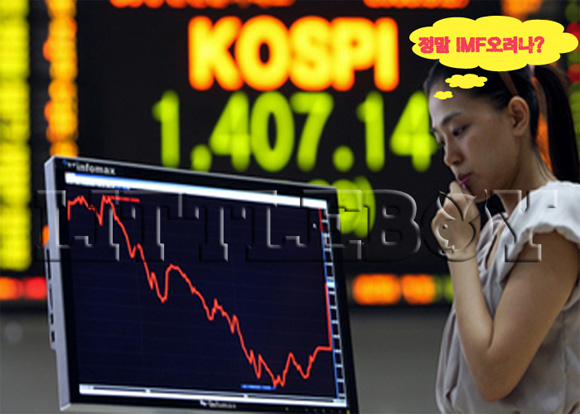 영어토론방 영어토론방 | Home>영어토론방 |
Diplomacy IMF, G20 and Korea
페이지 정보

본문

Seoul should seek substance, not superficiality
Only a decade ago, the IMF was one of the most dreaded ― and hated ― English acronyms for Koreans. Instead of the International Monetary Fund, numerous unemployed people rephrased it into ``I'm fired." For those who became homeless as their families broke up, or even committed suicide after going bankrupt, it stood for ``I'm finished."
What the IMF prescribed for Korea was the bitterest of financial pills ― prohibitive interest rates, steep currency depreciation, extreme fiscal stringency and harsh industrial restructuring, resulting in the fire sale of industrial and financial firms, massive unemployment and the collapse of the middle class.
Even then, there was a conspiracy theory, albeit barely audible amid the pressing need to get out of the financial turmoil as early as possible. The conspiracy theorists said Korea's crisis ― basically no more than a foreign-exchange liquidity crunch ― could have been avoided with Japan's help.
Tokyo was willing to come to the rescue of Seoul only to be blocked by Washington, which wanted to take the matter to the IMF for the complete liberalization of Korea's financial markets and turn them into targets of a shopping spree of Wall Street giants at dirt cheap prices. The U.S. also needed at the time to reaffirm its economic and political influence on Korea, which was turning from America's Cold War outpost to an increasingly disobedient mercantilist power, so the theory went.
It is neither easy nor necessary to try to verify its authenticity, but two things appear clear at the least.
First, the aftereffects of the ``IMF crisis" are ongoing, as seen by the aggravated economic polarization here. As the economic crisis forced even the center-left Korean governments to resort to neo-liberalistic policies, the surviving family-controlled conglomerates ― the main culprit of the crisis through debt-financed expansion ― even hardened their grips on the economy at the expense of numerous smaller businesses and the self-employed, resulting in ever-widening wealth gaps and undiminished joblessness, especially among the younger generations.
Second, what had facilitated the crisis was the then Kim Young-sam administration's haste to join the OECD even by opening up the immature short-term financial markets. It was a painful lesson that vanity not backed by solid inner strength can bring about a tremendous tragedy.
In the run-up to the G20 summit here in November, government officials say it will be an event that moves Korea from the periphery of this globe to its center stage. Although it is doubtful whether the world could and should be divided into the two groups, it would be good if Korea transforms itself ``from a rule-follower to a rule-setter," as the officials say.
But it was only two years ago this country barely avoided another currency crisis thanks to currency swaps with the United States and Japan.
Only when the host, along with other emerging economies, manages to bring at least part of the key global decision-making from G8 to G20, Koreans will find any meaning in the hefty hosting cost as well as the crackdown on street vendors and even whole-body scanners at the airport for just a two-day event.
Excerpt from The Korea Times
Source : http://www.koreatimes.co.kr/www/news/opinon/2010/07/137_69396.html
이 글은「대학연합영어토론동아리」www.pioneerclub.com에서 제공하는 영어토론 정보입니다.
댓글목록
등록된 댓글이 없습니다.

